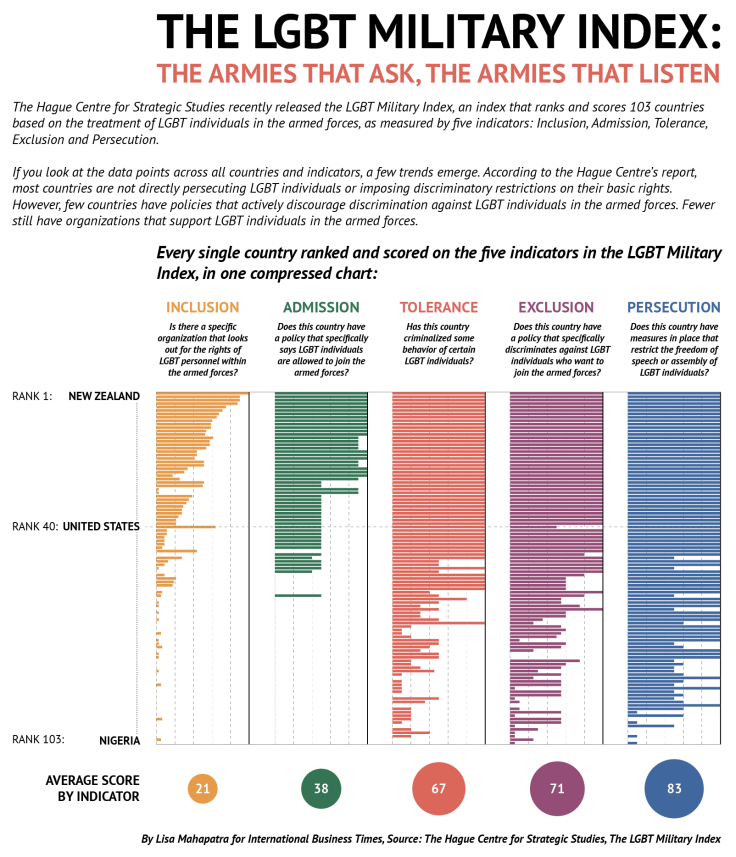Don’t Ask, Don’t Tell: US Ranks Low On Index That Measures LGBT Inclusion In Armed Forces [CHARTS]
The United States Department of Defense might have repealed its controversial “Don’t Ask, Don’t Tell” policy in 2010, but it’s still a long way from being the LGBT-inclusive ideal.
The U.S. DoD bans transgender individuals from serving in the armed forces, according to a document obtained by The Guardian.
Here’s a screenshot of the document, listing the basis on which any person can be rejected for military service.

The United States ranked 40 out of 103 countries in the LGBT Military Index, an index from the Hague Centre for Strategic Studies that measures LGBT inclusion in the armed forces.
It's likely this rule that causes the U.S. to rank so low -- below most of Europe and several Latin American countries like Cuba, Chile and Colombia.
New Zealand claims the top spot on this ranking, scoring perfectly on each of the five indicators measured -- inclusion, admission, tolerance, exclusion and persecution -- and that country is followed by United Kingdom and Netherlands.
At the bottom of the ranking were Nigeria, Iran and Syria.
Here’s an interactive map of countries color-coded by their rank on the LGBT Military Index. Click on any country to see how they rank and score on each of the five indicators:
If you look at the data points across all countries and indicators, a few trends emerge. According to the Hague Centre’s report, most countries are not directly persecuting LGBT individuals or imposing discriminatory restrictions on their basic rights.
However, few countries have policies that discourage discrimination against LGBT individuals in the armed forces. Fewer still have organizations that support LGBT individuals in the armed forces.
Here’s how each country scored on each indicator, compressed into one chart. Countries are ordered by their rank on the index. (See below for an expanded version of the same chart.)

Here’s an expanded version of the chart above:

Note: The LGBT Index was first released on February 20, 2014. Since then, based on feedback the Hague Centre received, the scores of two countries -- South Africa and Switzerland -- changed, giving both a higher placement in the rankings. The charts featured above are based on the latest data from the Hague Centre.
© Copyright IBTimes 2024. All rights reserved.






















